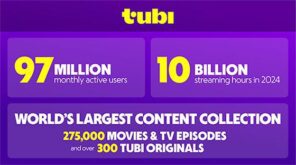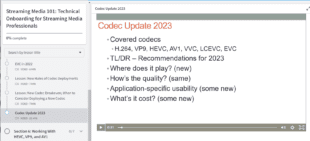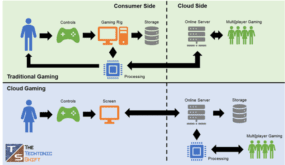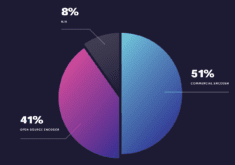HEVC comes with two benefits; equivalent quality to H.264 at about half the data rate, and ultra-high definition video. One big question about the new technology, however, is the impact of HEVC playback on device battery life, which is critical given how quickly mobile viewing is growing.
Techspot’s Tim Schiesser focused on this issue in his recent article, Media Players and Video Formats: A detailed Battery Live Analysis. Schiesser’s first series of tests focused on the efficiency of various media players on two devices, a Lenovo Miix 2 8 Tablet and an Acer Aspire Timeline U notebook, both running Windows 8. On both platforms, Windows 8’s native video player was the star, with more than 50% longer battery-powered viewing time than the least efficient player, VLC for Windows 8.
Schiesser next looked at battery life and video format, testing only the tablet. Here he found the HEVC playback reduced battery life by around 50% as shown in the chart below. Specifically, a 1080p video encoded in H.264 played for 8.6 hours, while the same video encoded in HEVC played for only 4.36 hours.
In this regard, Schiesser concluded:
Finally, while HEVC is by far the most impressive format in that it provides astonishing quality with a low bitrate, it’s extremely resource intensive to decode, especially on relatively weak tablet hardware. Until we get efficient hardware decoding for the format in future platforms, it’s unlikely we’ll see it overtake H.264 as the most popular video format.
 Streaming Learning Center Where Streaming Professionals Learn to Excel
Streaming Learning Center Where Streaming Professionals Learn to Excel








